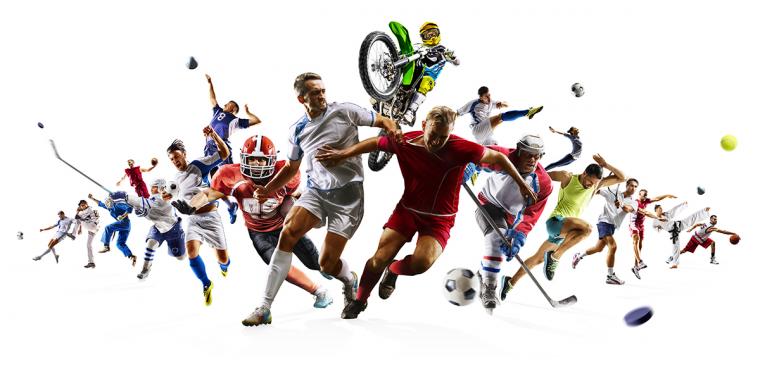
 When it comes to executing a successful event, camp or clinic, one of the terms used the most is “relationship.” And every successful coach, trainer, instructor and event planner knows that establishing solid relationships with athletes helps build the reputation of your event and keeps them coming back.
When it comes to executing a successful event, camp or clinic, one of the terms used the most is “relationship.” And every successful coach, trainer, instructor and event planner knows that establishing solid relationships with athletes helps build the reputation of your event and keeps them coming back.
Relationships are cemented in the foundation of the sports industry. However, those who host sporting events juggle various roles with limited resources. This takes valuable time away from the athlete experience, even though it’s a critical component to the event’s success and increasing revenue flows.
When working on the athlete relationship, you’ll want to keep open the lines of communication and make sure athletes know they have a way to be heard if they have concerns. Stay on top of your game technologically and you should be able to help do this. (Hint: If technology can take the burden off you, you can spend more time doing your job.) So with that in mind, here are a few overview points to look out for.
Make Sure Registration is Easy
If athletes’ first interaction with your event is when registering, it’s imperative the process move smoothly and easily. You want your people to have a good experience. Here are the points they will appreciate at the outset.
• Event registration. Your registration process should be smooth and easy for the user. At the same time, it should save you time and allow you to quickly look up individuals, should they contact you with a problem. Remember that you need a registration system that works both for you and for your athletes.
• Payment processing. Secure processing of payments and information can put athletes at ease, especially at a time when there are so many worrisome news items about data breaches. You want fewer hands involved and fewer eyes that can see sensitive information and credit cards. The last thing any attendee wants to think about is the risk of identity theft, so making sure they are confident when entering their credit card information may just tip the scales in your favor and help retain athletes to attend more events hosted by you.
• Staff management. Whether it’s a weeklong event or just a day clinic, every athlete should feel valuable, which means they should feel there are enough staff members to answer questions and make sure the event runs smoothly. Make sure you keep an eye on the registration numbers and are able to identify the right amount of staff members needed and determine their responsibilities. This helps ensure nobody gets overbooked and that resources are allocated effectively.
• Post-event surveys: You’ll want to reach out to your athletes right after the event, while everything is still fresh in their minds, to find out what they liked, what they thought needed improvement and of course, any suggestions they might have for the next event. Make sure each participant receives an e-mailed survey that can be completed quickly and sent back. Keep an eye on that feedback and implement any suggestions you hear repeated.
• Marketing. Don’t overlook the importance of marketing your event. Once your event has concluded, you’ll want to be able to track and analyze data and use it for future promotional and planning efforts. Making an e-mail list prior to the event of past athletes who might be interested will not only help your marketing efforts, but also keep your next event top-of-mind, encouraging additional word-of-mouth advertising and referrals.

What else should you be doing to build relationships? If your event includes a training program, you’ll want to make sure it offers a good, updated curriculum. Here again is a way to build relationships with athletes.
There are many ways to enhance curriculum for your event. For instance, if your event is a sports camp, consider incorporating the following:
• Always incorporate fundamentals. When creating event curriculum, it is crucial to start with the basics no matter what. Teach athletes the proper techniques and mechanics for better shooting, throwing, passing, defensive stances, tackling, batting or pitching. The last thing you want is for athletes to build on bad habits and improper techniques. It may not be the most exciting part of the event, but it’s crucial because it gives you a solid foundation to build on in following sessions.
• Training rotations. When you have different coaches at your event, consider using their specific expertise for group training rotations. Not only is it fun for athletes, but it also allows them to learn from different coaches. Make sure the stations all relate to a predetermined topic or theme for that day to create consistency.
• Incorporate a tournament. Typically, the event should be some type of tournament or competition that brings all of the pieces together. Don’t work on the fundamentals since this is the time to go full-sided and let them have fun. If you’re doing a tournament, make sure that losing teams don’t sit out the rest of the day; consider adding consolation draws.Make sure all athletes remain a part of the process.
Enhance Communication
Another key component of fostering strong athlete relationships is maintaining a constant flow of communication leading up to your event. Here again, technology can be your friend, assisting you with managing the communication process.
While e-mail is generally the most effective single channel, everyone has a different preferred mode for communication. Leveraging sports software allows you to easily develop a communication strategy that includes mobile as well. With more than 24 million smartphone users, the incorporation of mobile will increase the likelihood of your message getting noticed. These tools also have incredible automation capabilities such as push notifications, which help increase the speed of consistent communication.
In addition, if you hear the same event question more than once, update event details to include that information and mention it in upcoming messages. Surfacing this kind of information can reduce the number of customer messages you need to handle. And by maintaining positive, consistent communication with the athletes, they become more likely to reciprocate by actively engaging in the process.
Provide Credible Feedback
Maintaining constituent communication is important, but so is providing recurring insights on how athletes are progressing during the event. One way to provide better insight into players’ performance is by leveraging sports software that includes video technology with in-depth analysis to provide a training boost for individuals as well as the team as a whole.
Video technology allows coaches to dissect and assess player performance to provide feedback on technique, decisions and team strategy. It also provides a complete breakdown of one’s performance to give athletes a clear picture of improvements that need to be made.
When providing feedback to the athletes through video technology, make sure it extends to everyone. Some event planners make the mistake of paying attention only to the most high-performing athletes; these athletes are great, but they only represent a small percentage of your event’s population. And by paying attention only to elite performers, event owners turn away a chunk of potential customers, which could hurt revenue and number of attendees for future events. And although some of this technology may seem costly, there is also a great deal of affordable software on the market that adds an additional selling point to your event.
Have a Positive Impact
Building relationships with athletes is a key element to any successful event. There are multiple ways to build those relationships, but they can all be done best when you’re operating efficiently and aren’t burdened by administrative work. Making the process easier and more effective allows you to do your job, grow participation, keep in touch with a larger number of athletes and leave a lasting, positive impact on everyone. SDM

